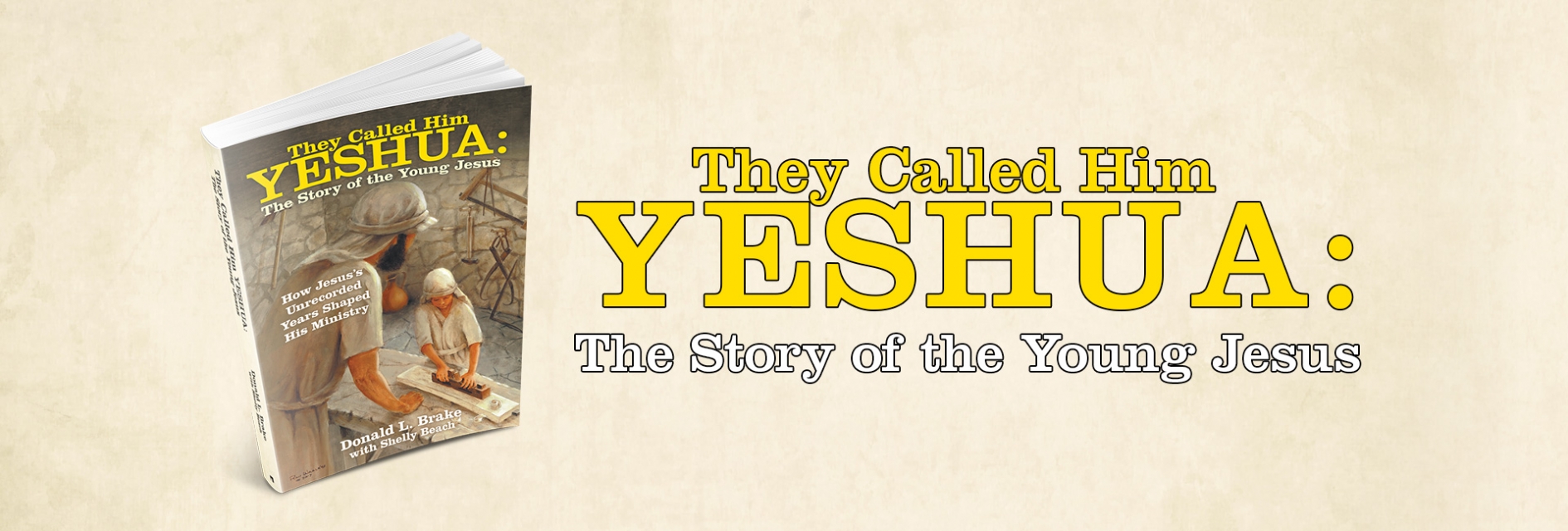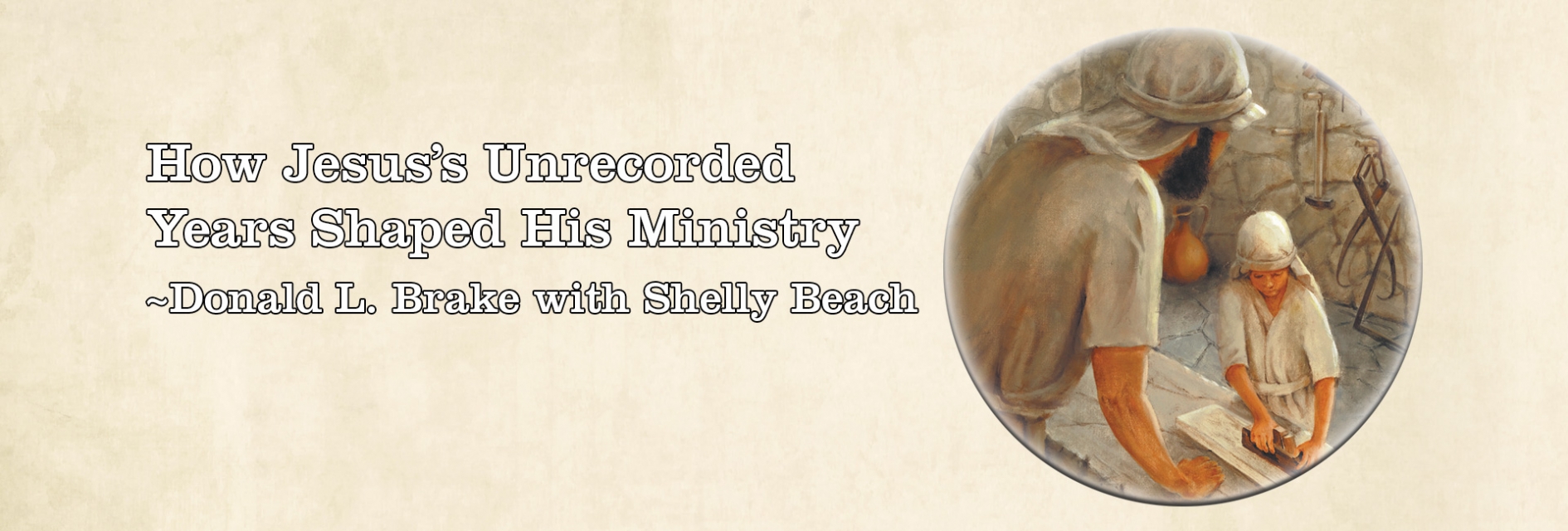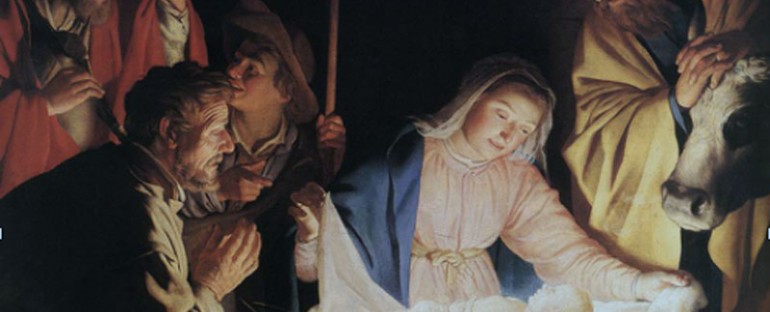

Today in the city of David a Savior is born; Jesus the Christ
LEWISVILLE TX: In the fourth watch of the night, Mary nudged Joseph. He moaned and rolled farther from her. She poked him sharply in the ribs.
“It’s time, Joseph!”
This time he sat bolt upright.
“Tonight? In a stable? I thought perhaps in a few days I could secure better lodging …”
Mary cut him off.
“No, now! The baby is coming, and he’s not waiting for anyone.” Mary tried to hide her fear. The pain was more than she’d expected. “Get Deborah.”
Joseph leaped to his feet and headed to the kitchen, where intoxicating aromas had already told Mary that Deborah was preparing the day’s menu for the many guests.
Deborah rushed into the darkness of the cave. Mary was now feeling the pain and pressure of labor every few minutes. Deborah ordered Joseph to stay with his wife and comfort her while she brought lamps and gathered the birthing materials.
Deborah settled into place and pointed at Joseph in the wavering light.
“You. Out. I will let you know when Mary has delivered and when you can see the baby. Your wife and I have work to do. Now go!”
Deep, throbbing pain. A teeth-gritting, final agonizing push. Then a tiny cry, and Mary forced her tiny son from the safety of her womb into the world.
Wonder overcame her as Deborah gently cleaned him, cut the umbilical cord, gently rubbed salt on the tiny body to prevent infection, then wound linen cloth around his arms and legs, according to custom, to help ensure proper growth. Deborah then placed the infant in Mary’s arms.
Mary asked Joseph to bring a blanket she and Aunt Elizabeth had woven by hand months before. She lovingly swaddled Jesus (Hebrew: Yeshua), making sure the blanket was snug against his body. Then Mary slipped the baby into Joseph’s waiting arms.
“Pain, yes. But Joseph … there are no words for this feeling. He is beautiful, and he is here. But what does the future hold? The questions in my mind seem too great to even imagine. I am sometimes afraid … but I do not doubt God.”
She snuggled her newborn son to her breast and gently kissed him on his forehead and watched his wee eyes struggling to remain open. She whispered,
“Do you know what lies ahead for you? The burden you must carry for all mankind—the Savior of the world?”
A cloud of sorrow suddenly hung over her joy as she grappled with the mysteries of the future for her precious Yeshi. But then, the music of God’s hosts of heaven echoed in the stillness and with a calm resolve and she quietly hummed in harmony.
Whatever destiny God had ordained for him, that day was far off. Today he was a newborn, and she was a new mother.
Mary’s story: Traveling to Bethlehem to give birth to Jesus
As Mary dozed and pondered her new role, voices at the gated cave entrance to the fields awakened Mary from her brief rest. Her eyes adjusted to the blackness, and she made out Joseph’s dim form striding toward the opening to the cave, where she saw the silhouettes of several young men.
Joseph spoke but she couldn’t understand his words. His statement was followed by men’s voices interrupting one another.
Then there was silence, followed by the sound of Joseph’s voice and footsteps approaching in the darkness.
“Mary, it’s all right. There is no reason to be afraid.”
She drew Yeshua closer and adjusted her clothing.
“May I ask who has chosen this time of night to visit and how they found us?”
“Shepherds, but not ordinary shepherds,” Joseph quickly responded. “Mary, this is a miracle, just like your pregnancy, the baby’s birth in Bethlehem, and the angels who spoke to us. I will let them explain.”
She smoothed her garments and brushed away a few clusters of straw that clung to her sleeves. Then she gathered Yeshua in her arms, cradled him to her chest, and pulled the blanket away from his face as a small group of shepherds made their way toward her. They were all speaking at once, trying to explain the reason for their visit. A star had beckoned them, and they had followed, engulfed by the most beautiful music imaginable.
Their story tumbled out as Mary sat stroking the face of her sleeping child and Joseph stood beside her.
“The night began as any other night …”
“We were looking after our father’s flocks …”
The shepherds interrupted one another until one hushed the rest and continued.
“The cold, damp air had chilled us, and we huddled around a fire in a shelter we built out of rock for protection from storms, heat, and cold—you saw it earlier. Suddenly, a blinding light illuminated the darkness. We were terrified. We fear Yahweh, try to obey the law, and attend synagogue. What had we done? Was God angry with us?
“An angel appeared and spoke out of the darkness, reassuring us. ‘Don’t be afraid!’ he said. ‘I bring you good news that will bring great joy to all people. The Savior—yes, the Messiah, the Lord—has been born today in Bethlehem, the city of David!’”
Mary looked at Joseph in astonishment. Had an angel truly appeared to shepherds to announce that the Messiah would be born in Bethlehem? Her eyes welled with tears. All that Yahweh had promised was being fulfilled.
The shepherd, who appeared to be the oldest, continued.
“It startled us when a mighty choir of angels sang God’s praises. A brilliant light shone on us as an angel spoke, telling us where the Messiah was to be born. We wanted to depart for Bethlehem immediately, but our father would be angry if we were to leave the flock unprotected. We had also been told about thieves on the road taking advantage of seasonal travelers.”
His voice slowed.
“But nothing could keep us from following the angel’s directions and searching for the Messiah’s birthplace.”
Mary listened to the shepherds’ story, fascinated. She glanced at Joseph and noted his solemn attention to the young men’s words.
God had chosen shepherds, a carpenter, and an unassuming Jewish girl to partner in His plan: simple people, flawed people. The magnitude of all that had happened within the past day overwhelmed her, and she reached for Joseph’s hand, only to find that, like the shepherds, he had slipped to his knees in reverence of the child in her arms. They Called Him Yeshua
“For unto us a child is born, unto us a son is given: and the government shall be upon his shoulder: and his name shall be called Wonderful, Counsellor, The mighty God, The everlasting Father, The Prince of Peace.” (Isaiah 9:6 KJV)
Merry Christmas to all!
About the Author
Written by Donald L. Brake Sr.
Donald L. Brake Sr., PhD, Dallas Theological Seminary; Dean Emeritus, Multnomah Biblical Seminary of Multnomah University. A former pastor, he lives with wife Carol, in Lewisville, Texas. The author has served as a Missionary in Ethiopia, SIM; Professor of Theology, Multnomah Biblical Seminary; Pastor, North Carrollton Baptist Church; President, Institute of Holy Land Studies (now Jerusalem University College; and dean Multnomah Biblical Seminary; and co-founder Living Word Bible Museum. He currently is a freelance writer. The author’s experience as president of the Institute in Jerusalem has given him insight into the historical, cultural, and geographical background of Israel and the life of Christ. Dr. Brake has led tours to the Holy Land and has taught the life of Christ and the Bible’s historical/cultural backgrounds for more than thirty-five years. Dr. Brake wrote a series of fifteen articles for the St. Louis Metro Voice and has published the Wycliffe New Testament. His book A Visual History of the English Bible was published in 2008 (a 2009 Evangelical Christian Publishers Association Christian Book Award finalist); Jesus, a Visual History with Todd Bolen, 2014; A Monarch’s Majestic Translation, in 2017; and A Visual History of the King James Bible, in 2011 (with Shelly Beach; also translated into Portuguese as "Uma Historia Visual Da Biblia King James"), a commemorative edition celebrating four hundred years of the King James Version. His major article “Versions, English” was published in The Interpreters Dictionary of the Bible, vol. volume 5, Abington Press. His most recent work is They Called Him Yeshua: the Story of the Young Jesus, 2019.



